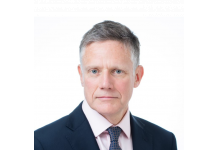Geographical Fallacies: An Investor’s Sin

- Rafael Esteban Correa, Partner at Mouro Capital
- 13.05.2021 03:30 pm Investment
Often, investors make what I call a geographical fallacy: saying that they invest in a region, when, in reality, they mainly invest in just one or two countries in that region. I’ve certainly been guilty of this, describing Mouro Capital as investing in ‘Europe, North America and Latin America’, despite only investing in companies headquartered in the UK, Germany and Spain in Europe so far, and only Brazil and Mexico in Latin America.
Many other VCs would, entirely fairly, argue that this is an outdated view of the world; that businesses are more multinational than ever before. If you invest in a company headquartered in Germany that also has offices in the UK, Luxembourg and Austria, then clearly, you’re investing in those countries too. Capital is not bound by national borders.
There are, of course, arguments against this perspective, but they tend to focus on the realms of taxation and labour complexities. To my mind, this misses the point. More companies than ever are multi-country, and international collaboration continues to increase every year. This should be encouraged and celebrated.
That said, my intention today is not to complacently pat the entire VC industry on the back for having invested in more countries than recognised at first glance. It’s the opposite – to encourage all of us, Mouro Capital included, to go further, and do better.
To me, investing in Europe is much more than investing in companies based in the UK, Germany and Spain, and indirectly in other markets that those businesses operate in.
Investing in Europe is investing in companies headquartered in Southern Europe, like Italy, which was named this month as the country with the most entries in the for the first time.
Investing in Europe is investing in companies based in Eastern Europe, like Estonia, which is one of the most advanced digital societies in the world, and Lithuania, which is becoming the EU’s fastest-growing fintech hub.
Investing in Europe is investing in companies headquartered in Ireland. Dublin has been attracting global tech giants for quite some time – VCs should be exploring what cities like Belfast and Cork have to offer.
Investing in Europe is investing in businesses headquartered in Benelux, where start-ups have seen increased attention from VCs in recent years. According to European Startups data, 2020 was a record year for VC investment into Benelux startups — reaching a whopping €2.7bn, up from €1.9bn in 2019.
Investing in Europe is investing in the Nordics, an already consolidated tech ecosystem with.
Investing in Europe is investing in companies based in France, which is another consolidated tech ecosystem and the third most active VC market in Europe.
The venture capital industry has come under fire recently for a lack of diversity, and investors across the board have pledged to make their portfolios more inclusive. There is no reason to exclude geographic inclusivity from this aim. Europe as a whole is in a golden age of innovation, and there has never been a better time to broaden our horizons.
By actively exploring the opportunities outside our own regions, we will be exposed to new ideas and innovative ways of tackling problems, and ultimately identify businesses that are ready to make their mark, with just a little help from investors.
By eliminating the geographic fallacy, we can change the world for the better.
























